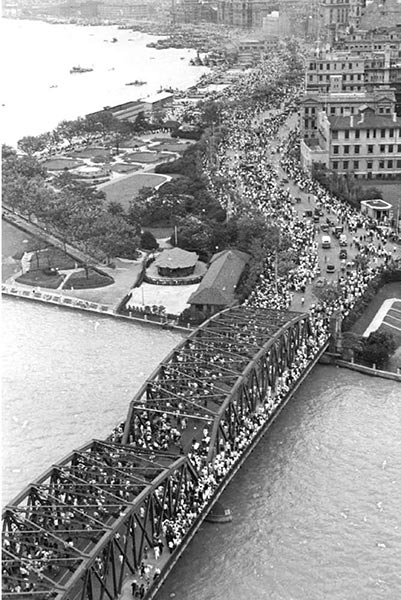Seeing the whole picture
 0 Comment(s)
0 Comment(s) Print
Print E-mail China Daily, August 5, 2015
E-mail China Daily, August 5, 2015
| The Garden Bridge is filled with refugees in Shanghai on Aug 18, 1937. [Photo provided to China Daily] |
The book devotes one chapter to documenting the bloody killings and rapes that lasted six weeks in Nanjing, then the capital of China, in 1937.
Most of the rare accounts are from a few Westerners, including German businessman John Rabe, Nanjing University professor Lewis Smythe and American missionary Minnie Vautrin, who stayed in the city to shelter Chinese civilians by setting up an international safety zone.
Though more than 70 years have passed, the collective memory of the war against the Japanese hasn't faded from Chinese people's minds. The horrors of war are at the root of anti-Japanese sentiment among Chinese whenever Japanese officials visit the Yasukuni Shrine that honors Japan's war dead, including 14 Class-A convicted WWII criminals.
"If we wish to understand the role of China in today's global society, we would do well to remind ourselves of the tragic, titanic struggle which that country waged in the 1930s and 1940s," writes Mitter.
"Not just for its own national dignity and survival, but for the victory of all the Allies, West and East, against some of the darkest forces that history has ever produced."







Go to Forum >>0 Comment(s)